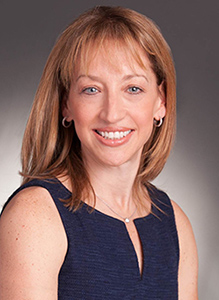We all know 2020 is a challenging year, but it’s not without its silver linings. One unexpected upside? The Autism Science Foundation’s annual Day of Learning, a TED-style science conference, went virtual this year on Sept. 22, allowing attendees to take part from all over the world. Although I was sad to miss the opportunity to chat with the participants in person, I was heartened to see that more than 800 people took part in this important day – a new record.

Alison Singer
President
Autism Science Foundation
Our first speaker, Dr. James McPartland of the Yale Child Study Center, also spoke of the unforeseen positives to the pandemic during his talk on the state of autism research in 2020. He noted that despite the challenges associated with the pandemic, he’s been amazed by how the entire autism research field has “coalesced” during this time. “In my 20 years in the field I’ve never seen this kind of collaboration and ingenuity,” he said. Even more heartening? He’s convinced the advances he’s seen in the past few months will stick.
Still, families confronting autism know the coronavirus crisis has uprooted routines and often increased isolation. We hope this year’s Day of Learning provided connection in addition to education.
This year’s event also broke news. Dr. Catherine Lord of the Semel Institute of Neuroscience and Human Behavior at the David Geffen School of Medicine at UCLA debuted a new term during the conference: profound autism. The term, which was developed in conjunction with the Lancet Commission, is meant to describe people on the spectrum with high levels of impairments who require the greatest degree of support. Lord explained the goal of the term is to “lead to extra access to services.” She noted that autism is a very heterogeneous condition that impacts people in many different ways, and the “profound autism” term is meant to create an easier path for support for those it applies to without stigmatizing them.
Dr. Melanie Pellecchia of the University of Pennsylvania also offered a dynamic presentation titled “Is ABA Passe” and answered the question definitively: No. She explained that the techniques used in the early application of applied behavior analysis (ABA) resulted in significant improvements in cognitive functioning and a wide range of communication and daily living skills for many children who had previously made little to no progress. But she also did not shy away from noting that the way ABA was administered years ago was deeply flawed—and has since evolved significantly. “As an ABA practitioner I reflected on myself and the field, then I went on a life-changing training,” Pellecchia shared, explaining that practitioners are now trained to be giant “chocolate-chip cookies” with a play-based, fun approach.
Dr. Brian Scassellati of Yale University also highlighted a fun and promising intervention in his talk titled “Robots as Autism Therapy Partners.” Showing off an adorable robot nicknamed “Ezra,” he discussed how advances in robot therapy have often led to increased eye contact and communication in patients. “Kids were excited, parents were excited,” he said.
Dr. Matthew Lerner of Stony Brook University also spoke about developing personalized social interventions for adolescents with autism, while Dr. Vanessa Hus Bal of Rutgers University talked about her research on adults with autism in natural settings, and noted that while many resources supporting adults with autism focus on helping them through transitions, more attention needs to be paid to providing ongoing supports.
All of these talks occurred within a larger context: many research facilities across the U.S. are still closed due to the pandemic, causing challenges and delays for numerous promising projects. Our hope is that our Day of Learning served as a reminder of the incredible impact that good autism research can have on the lives of individuals on the spectrum and their families. ASF has been working to help meet these challenges, launching new funding mechanisms including our COVID-19 Pivot Grants and COVID-19 Research Funding.
Going virtual with the Day of Learning was certainly not in our plan for this year, but with so much insight delivered to so many around the world, it was one of our most successful. Despite the disruption, autism researchers continue to work tirelessly to understand the causes of autism and develop new treatments, and this year we are especially grateful.
Alison Singer is a founding member of the Autism Spectrum News Editorial Board.
For more information, visit autismsciencefoundation.org.




